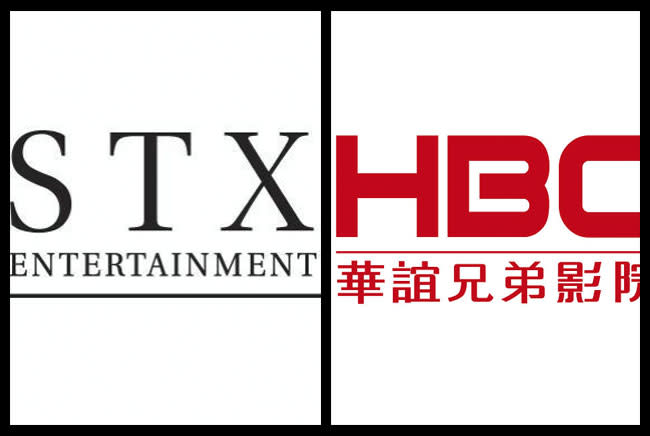China “More Capitalistic Than U.S.,” Ryan Kavanaugh Says At Execs’ Milken Panel

At today’s Milken Institute Global Conference panel on “Can Hollywood Speak Chinese,” a number of film industry execs who have overcome hurdles and succeeded doing business in China — IM Global founder and CEO Stuart Ford, Relativity founder and CEO Ryan Kavanaugh, STX Entertainment CEO-Chairman Robert Simonds and Lionsgate Co-COO Brian Goldsmith — shed light on how they’ve obtained financing, released films and essentially navigated the culture’s business practices.

Kavanaugh, whose first Chinese co-production was the 2008 Jackie Chan-Jet Li film The Forbidden Kingdom, explained the current high stakes at the box office. Currently, whenever a studio releases a movie over there, it can take home only 25% of the box office revenue. “You live or die by your box office receipts. You have to make your money in two weeks,” Kavanaugh explained. In addition, the TV market there still is regulated by propaganda, and the Chinese government has a tendency to shut down new streaming outlets. Kavanaugh mentioned that it’s a current impediment in doing business there for film companies.

While the quota on U.S. films — which currently numbers 36 releases a year — is often reported in the media as being a big hurdle, Kavanaugh pointed out that “there’s Chinese co-productions” for U.S. film companies to take advantage of in terms of working their way onto the big screen. “It’s overlooked. Clearly what the Chinese are saying is, ‘You only have 20% of our box office, but we’ll let you in, America, if you want to go outside that system. Come work here. Chinese co-productions don’t fall into those (quota) slots. You have to have Chinese crew members, and your films do not need to be in Chinese.

“Don’t look at China as a way to extract dollars. What they’re saying is, ‘We’re willing to let you own more of our box office, but you have to do it here,” added the Relativity chief.
Relating to the same point, Kavanaugh advised: “In 2008 when box office was booming, a number of studios started putting buildings up over there, such as Fox and Disney. Those buildings have literally disappeared. The Chinese are about displaying their culture. It’s the reason why I never opened a Relativity building over there. You never do anything that shows you’re going to impact their culture or take it over.”
RelatedSTX Entertainment Pacts With China’s Huayi Bros For 12-15 Pics Per Year

Kavanaugh praised Simonds’ recent dealmaking in China. On April 1, Simonds sealed a three-year pact between his STX company and China’s largest privately held film firm, Huayi Brothers Media Corp, to bankroll 12-15 projects per year in the $20M-$60M production budget range. China’s Hony Capital also has invested in STX.
“The great thing about Bob’s deal is that Hony and Huayi are nongovernment-affiliated,” Kavanaugh said. “Probably 70% of all funds there are government-affiliated, which means (U.S. film companies) have to run through a government process, which is extensive and intensive, requiring check-the-box steps. Let’s say you need a leader to sign off on a visa. It could take six months to get that meeting onsite for a visa check.”
Kavanaugh said Simond’s smart partnerships with private companies that are dedicated to the film business were “brilliant” and “uncommon.”

At the top of the panel, the execs discussed how patient U.S. execs need to be when conducting transactions with the Chinese. American businessmen tend to get into a room and hammer out a deal, but with Chinese business partners, it can take a number of meetings. Kavanaugh explained, “In America, we like to get in a room and make a deal.” Simonds acknowledged that “Hony and Huayi are both Western in their approaches, and that made for an easy transaction.” Given how Chinese deals can fall through at the last minute, Simonds mentioned how he didn’t want it known to the public that STX was in a deal with China until the money was deposited in the bank. “When we decided to form a new studio, we always knew we couldn’t build one without China being part of the story,” said Simonds.

Ford spoke about how China and the U.S. are slightly similar in their film financing. While IM Global as an independent company will rely on structured financed on a picture-by-picture basis, “the Chinese don’t rely on heavily structured financing (with their films). They rely on either big studios like Huayi and funding from private individuals who have netted their money in coal mining or other industries.”
Further expounding on how the Chinese fund pic by pic, Simonds said: “They announce a film as a way of starting a syndication process. They’ll commit money, but they’ll go through a network of individuals to cobble the money together. Sometimes it comes together and sometimes it doesn’t happen.”
But with great opportunity, comes great cost. Assessing the upside of doing business in China and its risks, Kavanaugh said: “China is the most capitalist place I’ve ever seen. It’s as capitalistic if not more capitalistic than the U.S. It doesn’t happen to be a freedom of speech society. It’s a communist society, and you have to live by their rules. … It is the single most capitalist place there is. There is more venture capital, more investment, more real estate growth — you name the industry and there are people just clamoring to grow with it. The government doesn’t want it to stop. They want to see growth, they want to see capitalism occur. They just divided capitalism and freedom of speech. Or capitalism and communism. They’re not tied.”
Related stories
It's F-Bombs Away For USA's New 'Mr. Robot' Campaign; Official Key Art Also Revealed - Update
'Strangerland' Trailer: Nicole Kidman & Joseph Fiennes Search For Their Missing Kids
NBCU Teams With AOL To Cross-Promote And Co-Produce Web And TV Content
Get more from Deadline.com: Follow us on Twitter, Facebook, Newsletter

